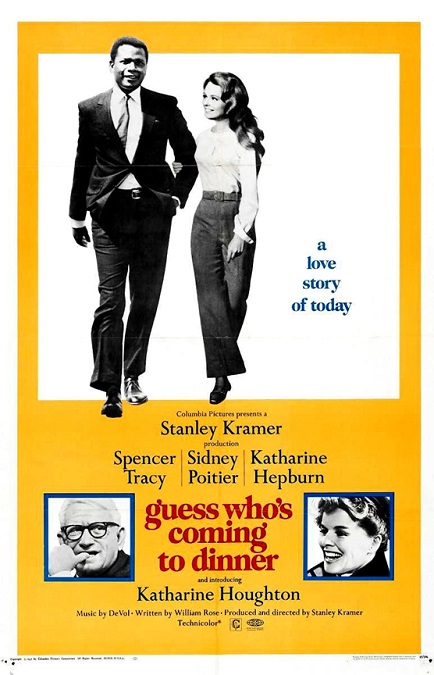
Guess Who’s Coming to Dinner? – 1967
I liked this movie. Sure, it was predictable, but it had a really good message. The acting was all pretty amazing, and the script was well-written. The movie’s big stars were Sidney Poitier, Katherine Hepburn, and Spencer Tracy. Newcomer Kathrine Houghton filled out the main cast, but I have to make special mention of three other actors who each stood out to me as very good actors. Roy E. Glenn, Beah Richards, and Isabel Sanford proved that they were every bit as good as the Hollywood superstars.
The movie was primarily about racism and it did a wonderful job of examining the issue from a few unique angles. The movie was about a rich white family in San Francisco who are most definitely not racists. Spencer Tracy plays the father, Matt Drayton, and Katherine Hepburn plays his wife, Christina. Their 23 year old daughter Joanna comes home from a vacation in Hawaii, engaged to John Prentice, played by Poitier. The main drama of the piece is centered around how the parents deal with the interracial relationship between Joanna and John. Being a non-racist is all very well and good, but it is a different matter when it hits home in such a big way.
Sure, John seemed to be perfect husband material. He was a prominent and wildly successful doctor. He was kind, thoughtful, polite, respectful, conscientious, and clearly in love with Joanna. The problem that Matt had with him was the color of his skin, and that’s OK because that was the social issue the film was trying to tackle. But my problem would have been the fact that the girl wanted to marry a man she had only known for 10 days. Forget skin color! After only 10 days, you have no idea who this man is!
The film also looks at the situation from the perspective of the family’s black maid, Tilly, played by Sanford. She showed a certain amount of anger at John because it was like he was trying to rise above his station, as if a black man had no business trying to marry a white woman. Then there was the film’s surprising view of interracial relationships from the perspective of the church. Monsignor Mike Ryan, played by Cecil Kellaway, was in full support of the marriage without reservations.
But for me, the stand out member of the cast was really Hepburn. She had a couple of scenes that were priceless, the best of which is one in which she fires her employee for being a horribly racist woman. Her little monologue was so perfect that it bears repeating here. “Now I have some instructions for you. I want you to go straight back to the gallery – Start your motor – When you get to the gallery tell Jennifer that she will be looking after things temporarily, she’s to give me a ring if there’s anything she can’t deal with herself. Then go into the office, and make out a check, for “cash,” for the sum of $5,000. Then carefully, but carefully Hilary, remove absolutely everything that might subsequently remind me that you had ever been there, including that yellow thing with the blue bulbs which you have such an affection for. Then take the check, for $5,000, which I feel you deserve, and get – permanently – lost. It’s not that I don’t want to know you, Hilary – although I don’t – it’s just that I’m afraid we’re not really the sort of people that you can afford to be associated with. Don’t speak, Hilary, just… go.” A properly chagrined Hilary drives away without a word. I loved it! Then after that the film was pretty bold in its use of language when Joanna calls Hillary a “bitch!” Quite surprising… but appropriate.
I also have to mention the incredible acting of John’s parents John Prentice Sr. and Mary, played by Glenn and Richards. They were both great, but Beah Richards stood out to me as wonderful. She doled out some of the film’s most profound wisdom, and she was pivotal in the film’s climax in which Matt changes his mind and decides to give his blessing on the marriage. The film was a wonderful proponent of racial tolerance, released at a point in history when the issue was the hot topic. But I think that it was the character of John who said it best when he said to his disapproving father, “You think of yourself as a colored man. I think of myself as a man.” How very true. OK, maybe Poitier rivaled Hepburn in performance power. Of course, Tracy’s speech at the end was supposed to be the film’s main emotional climax, but while it was good, his style of subtle and understated emotion just didn’t pack the same punch as the other actors.
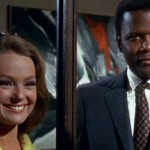
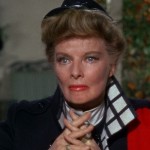
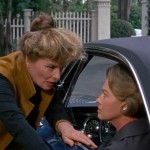
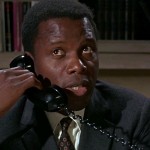
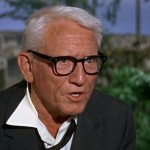
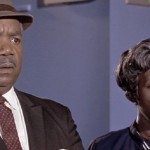
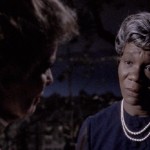
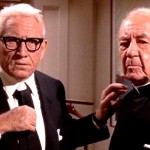
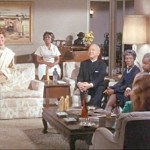
I too love that movie for all the reasons you mentioned. I never tire of watching it. I pitied the misguided Tilly that felt that blacks should remain in their place.
I understand those who profess not to be racist , but feel a little uneasy about mix marriages. Personally I like things wrapped up in neat packages. Like with like i.e. marrying someone of your own race whenever possible, thus reducing the confusion and ethnic ambiguity when children come along. Nothing to do with racism.
Some people have a preference for black hair, others for blond hair. The same as some would prefer a blue dress rather than red. Weak analogies I know, but nothing to do with racism.
I feel that the word “racist” is used far too loosely and generically, where the term “prejudice” would be more appropriate. Racism is much more damaging. It’s to do with power; the real sticks and stones, denying another race opportunities and reducing their life chances and life style.